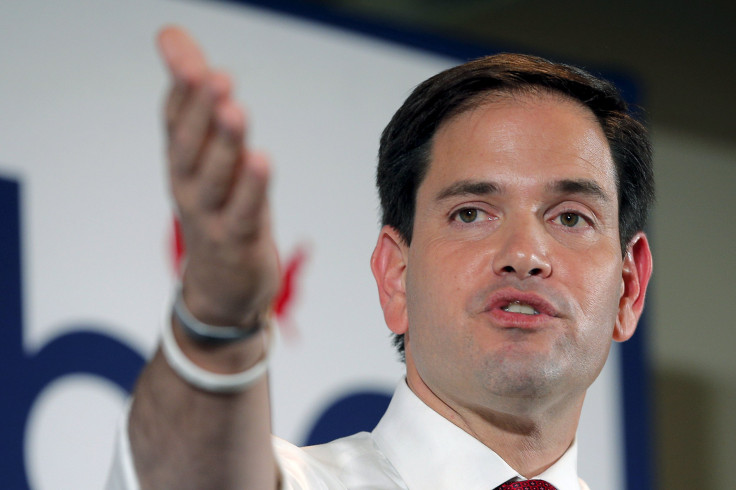GOP Debate: Marco Rubio's Rising Star Will Be A Main Target For Trump, Bush, Cruz

When Florida Sen. Marco Rubio walks out onto the debate stage Tuesday night, there’s at least one thing he can expect to encounter: attacks from front, right and center. Rubio has been the lucky recipient of rising polls since the third Republican debate, but that goodwill has also caused his closest rivals in the GOP field to bare their teeth.
In the days leading up to the Milwaukee, Wisconsin event, real estate mogul Donald Trump, former Florida Gov. Jeb Bush and Texas Sen. Ted Cruz have all provided a preview of how they may treat Rubio.
Trump called him a “lightweight choker,” a marriage of Trump’s opinion that Rubio has weak stances on immigration reform and a reminder that Rubio once awkwardly grasped for water during the Republican response to the 2013 State of the Union. Bush’s super PAC is planning to run $20 million in attack ads against Rubio and label him as inexperienced. Cruz has begun his attempt to label Rubio as more “moderate” than “conservative.”
"@kniala: @realDonaldTrump Exactly. Marco has no accomplishments."
— Donald J. Trump (@realDonaldTrump) November 10, 2015
Bush and Cruz seem to have almost opposite motivations to do so. Both candidates are looking to secure the votes of two different Republican bases, and Rubio seems capable of tapping in to both. For Bush, it’s the establishment Republican base. For Cruz, it is conservative Republican voters who frequently play a pivotal and powerful role in the GOP nominating process but can compromise electability in a general election.
Trump is currently in first place among Republicans in averages of national polls put together by Real Clear Politics, but not by much. He is closely tailed by retired neurosurgeon Dr. Ben Carson, who has seen a surge in the polls of his own. Rubio comes in third, followed by Cruz and Bush. Trump receives 24.8 percent, Carson gets 24.4 and Rubio receives 11.8. Cruz tallies up 9.6 percent and is followed then by Bush with 6 percent.
© Copyright IBTimes 2024. All rights reserved.












